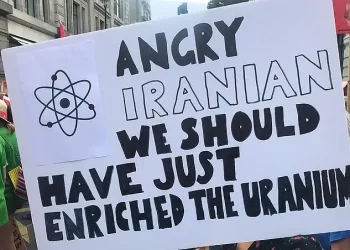Rubio and Netanyahu Discuss Security, Iran, and Gaza
JERUSALEM, ISRAEL — U.S. Secretary of State Marco Rubio met with Israeli Prime Minister Benjamin Netanyahu in Jerusalem, reinforcing the long-standing U.S.-Israel alliance. Their discussions focused on Iran’s growing influence, Hamas’ role in Gaza, and broader regional security.
The meeting, following a historic Washington visit, underscored both nations’ shared commitment to stability and strategic cooperation.
U.S.-Israel Partnership in Focus
Rubio’s visit marked his first to Israel as Secretary of State. Netanyahu warmly welcomed him, emphasizing his history of support for Israel. Their dialogue reaffirmed mutual goals, including countering Iran’s nuclear ambitions and strengthening Israel’s security position.
The Prime Minister praised former President Donald Trump’s unwavering support, calling him Israel’s greatest ally in the White House.
Rubio echoed this sentiment, highlighting the necessity of eliminating Hamas as a governing force. He reaffirmed U.S. backing for Israel’s military and strategic objectives.
Addressing the Iran Threat
A key issue discussed was Iran’s expanding regional influence. Both leaders agreed that Tehran’s pursuit of nuclear weapons poses an existential threat.
Rubio reiterated the U.S. stance against a nuclear-armed Iran, citing its role in funding terrorist organizations across the Middle East.
“Behind every act of violence and instability in the region is Iran,”
Rubio stated, emphasizing Washington’s commitment to dismantling Iran’s terror networks.
Gaza: Future and Challenges
Discussions on Gaza centered on Israel’s strategy to prevent future threats. Netanyahu outlined Israel’s determination to eliminate Hamas’ military and political control. Rubio supported this approach, calling for innovative solutions beyond past diplomatic efforts.
Main Points from the Discussion:
- Continued U.S. military and diplomatic support for Israel’s operations in Gaza.
- Future strategies for rebuilding and stabilizing Gaza post-conflict.
- Strengthening intelligence cooperation to prevent terrorist activities.
Regional Security and Lebanon’s Stability
The leaders also addressed Lebanon’s fragile security. Netanyahu warned against Hezbollah’s aggression and called for the full implementation of UN resolutions requiring its disarmament. Rubio affirmed the U.S.’s role in ensuring Lebanon remains stable and free from Iranian-backed militant control.
International Institutions and Lawfare
A significant portion of the discussions focused on international legal battles. Netanyahu condemned institutions like the International Criminal Court (ICC) for their bias against Israel and the U.S. Rubio supported Trump’s reinstatement of sanctions against ICC officials, emphasizing the need for a unified strategy to counter these legal challenges.
Geopolitical Developments and U.S.-Israel Cooperation
| Issue | Israel’s Position | U.S. Support |
|---|---|---|
| Iran Nuclear Threat | Prevent nuclear development | Full backing for deterrence |
| Gaza Conflict | Eliminate Hamas and secure borders | Military and diplomatic support |
| Lebanon Security | Enforce ceasefire agreements | Encourage Lebanese stability |
| ICC Sanctions | Reject anti-Israel rulings | Continue sanctions and legal countermeasures |
Moving Forward
As the U.S. and Israel navigate shifting Middle Eastern dynamics, Rubio’s visit underscored their strategic alignment. With Iran’s aggression, Gaza’s instability, and international legal battles in focus, both leaders reaffirmed their commitment to a secure future.
For further insights on U.S.-Israel relations and regional security updates, stay informed with expert analysis and reports.
Sources: US Department of State.









